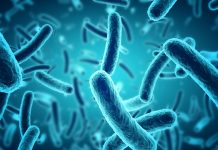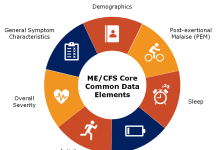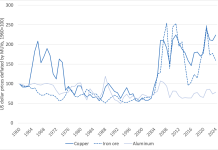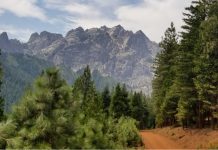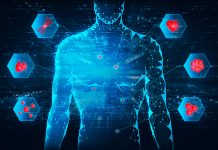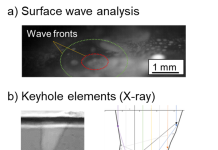Open Access Government produces compelling and informative news, publications, eBooks, and academic research articles for the public and private sector looking at health, diseases & conditions, workplace, research & innovation, digital transformation, government policy, environment, agriculture, energy, transport and more.
Home 2025
Archives
Microbiomes should be incorporated into The One Health Joint Plan of Action
The One Health Joint Plan of Action was created by major international organizations to tackle global health issues related to human, animal, plant, and environmental health. This article emphasizes the importance of integrating microbiomes into this framework to enhance health systems and prevention strategies.
Quantitative reasoning in higher education: The 5C Model
Quantitative reasoning enhances and lengthens lives. Professor Gregory Foley of Ohio University discusses how his team is improving QR instruction in U.S. higher education.
Identifying potential exercise mediators
Dr Robert Wessells and his team at Wayne State University are researching exercise mediators and mimetics in fruit flies (Drosophila melanogaster) to explore how to provide the benefits of exercise to individuals who are unable to access it. Here, he shares what he has discovered during his research.
Physics: Quarks and Gluons explained
Professor Claudia Ratti from the Physics Department at the University of Houston explains the essential information about quarks and gluons, including the so-called Quark-Gluon Plasma, plus Quantum Chromodynamics.
Programmable iontronic neural networks
Guo-Xing Miao, Professor at the University of Waterloo, guides us through programmable iontronic neural networks.
Common data elements to advance ME/CFS research
Standardizing data collection in ME/CFS research through Common Data Elements is a crucial step toward improving diagnosis, advancing treatments, and fostering collaboration across studies to accelerate progress in understanding this complex disease.
Metal price cycles, including copper, aluminum, and cobalt
Read this analysis of metal price cycles, including copper, aluminum, lithium and cobalt, featuring insights from Christopher Gilbert of Biena Consulting Srl. It also addresses the significant increase in metals demand from China between 2003 and around 2012.
Student feedback: Embracing the student voice to transform the educational landscape
Professor Emeritus and Inaugural Pegasus Professor Charles D. Dziuban discusses the importance of integrating student feedback in teaching and learning in higher education.
The role of dialogue in teaching and learning
In her previous piece for Open Access Government, which emphasized the importance of educational philosophy and the value of every school debate, Stephanie Schneider now shifts her focus to the essential role of dialogue in teaching and learning.
The influence of rock type on conifer species’ nutrition and biomass partitioning
Mark Kimsey, Director of the Intermountain Forestry Cooperative, explains the influence of rock type on conifer species’ nutrition and biomass partitioning.
Model thinking for everyday life
Many people rely on quick internet searches for knowledge acquisition. In his book MODEL THINKING For Every Day Life, Richard C. Larson discusses how we can rethink our approach to problem-solving, leading to greater learning in the process.
Bioinformatics into TB surveillance: A new approach to an ancient foe
David Ussery, a Professor in the Department of BioMedical Informatics at UAMS, and his Ph.D. student Brian Delavan discuss bioinformatics into TB surveillance, presenting a new approach to tackling this ancient foe.
No safe haven: Why business leaders must act now to address Earth’s polycrisis
As hurricanes devastate former climate havens, learn why business leaders must embrace Sustainable Strategic Management to address Earth’s polycrisis before it’s too late.
Personalized medicine in oncology: Small molecule inhibitors, biologics and immunotherapies
Priya Hays, PhD, CEO of Hays Documentation Specialists, discusses innovations and advancements in the development and evaluation of personalized cancer therapies.
Stem cell exhaustion and its role in healthy aging
Scientist Sarallah Rezazadeh from the Icahn School of Medicine explores the molecular mechanisms behind adult stem cells as we age.
Does surface tension above boiling temperature still exist?
It remains unclear whether boiling metal surfaces can still show surface tension, says Prof Dr-Ing. Jörg Volpp, Associate Professor at University West, Trollhättan in Sweden.
Prenatal cannabis exposure and its lasting impact on memory
Professors Miranda Reed from Auburn University and Vishnu Suppiramaniam from Kennesaw State University have studied how prenatal cannabis exposure affects brain development and cognitive functions, including memory.
Biochar technology to sequester billions of tons of CO2
This CDR champion industry, biochar, has proven technology that can quickly grow to sequester billions of tons of CO2. However, the industry has growing pains it must overcome to reach its extraordinary potential, James Gaspard, CEO of Biochar Now LLC, reveals.
The microbiome and aging: Unlocking new frontiers in healthy longevity
Research conducted by the USF Microbiomes Institute and the MiaGB Consortium is uncovering the significant link between microbial communities and host biology. This understanding could lead to new therapies for age-related conditions. Shalini Jain, Christian Brechot, and Hariom Yadav provide further insights.
Rethinking the reproductive clock: Can NAD+ preserve fertility?
Recent research indicates that the compound NAD+ offers a promising solution to support fertility and reproductive longevity.

